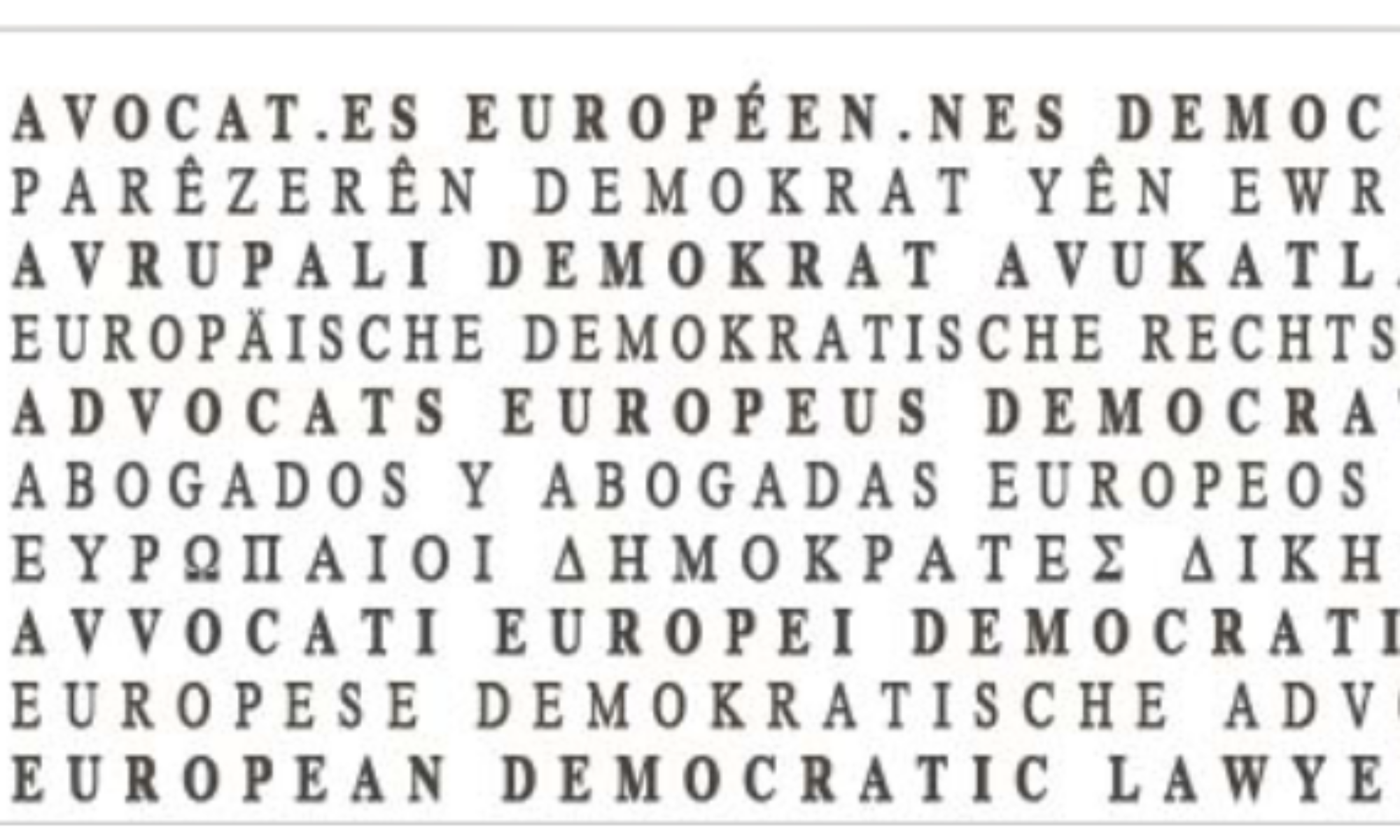The DAY OF THE ENDANGERED LAWYER is commemorated annually on the 24th of January. On this date, January 24,1977, four trade union lawyers and the employee of a law firm were murdered in their office in the Atocha street of the Spanish capital Madrid, when a group of men broke into their office. These lawyers were assassinated for exercising their profession and with the aim of instilling fear and destabilizing Spain’s democratic system after decades of Franco’s unlawful dictatorship.
Since 2010, and in remembrance of the Atocha Massacre, January 24 has been chosen to highlight the difficulties and dangers of lawyers in the exercise of their profession. Every year the focus is on one particular country, where lawyers are being harassed, silenced, pressured, threatened, persecuted and even tortured or murdered.
In past years, the Day has focused on countries like China, Iran, Egypt or Turkey and the number of organisations and bar associations joining the Coalition of the Day of the Endangered Lawyer has grown steadily, acquiring global importance.

Protecting lawyers from persecution and constraints in the exercise of their work is of vital importance for a functioning democracy.
As such, the UN has set forth a set of principles, to promote and ensure the proper role of lawyers, should be respected and taken into account by Governments within the framework of their national legislation.
Under these basic principles, “Governments shall ensure that lawyers are able to perform all of their professional functions without intimidation, hindrance, harassment or improper interference.” In addition, lawyers, like other citizens, are entitled to freedom of expression, belief, association and assembly. In particular, they have the right to take part in public discussion of matters concerning the law, the administration of justice and the promotion and protection of human rights, and to join or form local, national or international organizations and attend their meetings, without suffering professional restrictions by reason of their lawful actions or their membership in a lawful organization.
These principles, known as the Havana Principles furthermore protect the independence of professional associations of lawyers and the appropriate procedures for disciplinary proceedings to ensure lawyers can work independently and without fear of repression in account of their work.

The Erosion of Legal Independence and Professional Rights in BELARUS
This year, the Day of the Endangered Lawyer is dedicated to the plight of lawyers und human rights defenders in Belarus. The findings of the report, on which our claims are based, indicate a troubling deterioration of the situation of lawyers in Belarus since 2020. In fact, there seems to be persistent trend in Belarus where legal practitioners face increasing criminal sanctions, arbitrary detentions, and systemic interference in their professional duties.
The legal framework and practices currently observed in Belarus deeply infringe on lawyers’ rights by enforcing excessive restrictions on freedom of expression, arbitrarily interpreting and applying these restrictions, and penalising participation in lawful international activities. There is a critical need for reform and strict adherence to legal principles that protect the independence and professional activities of lawyers to restore fairness and justice within the legal system in Belarus.
Furthermore, the combination of state bodies, bar associations, and state media has created an atmosphere of intimidation that severely impacts the legal profession’s integrity. Such an atmosphere not only targets individual lawyers but also seeks to inhibit the entire legal community from effectively performing their duties, thus directly infringing on the rights of clients and compromising the integrity of legal defense, especially in politically sensitive cases.
The Belarusian state’s actions contravene both national laws and international standards. These actions include misusing ethical standards to sanction lawyers for their professional and public expressions, thereby stifling dissent and curbing lawful advocacy. This systemic assault is aimed at silencing the legal community and inhibiting its ability to uphold democratic principles and human rights effectively.



